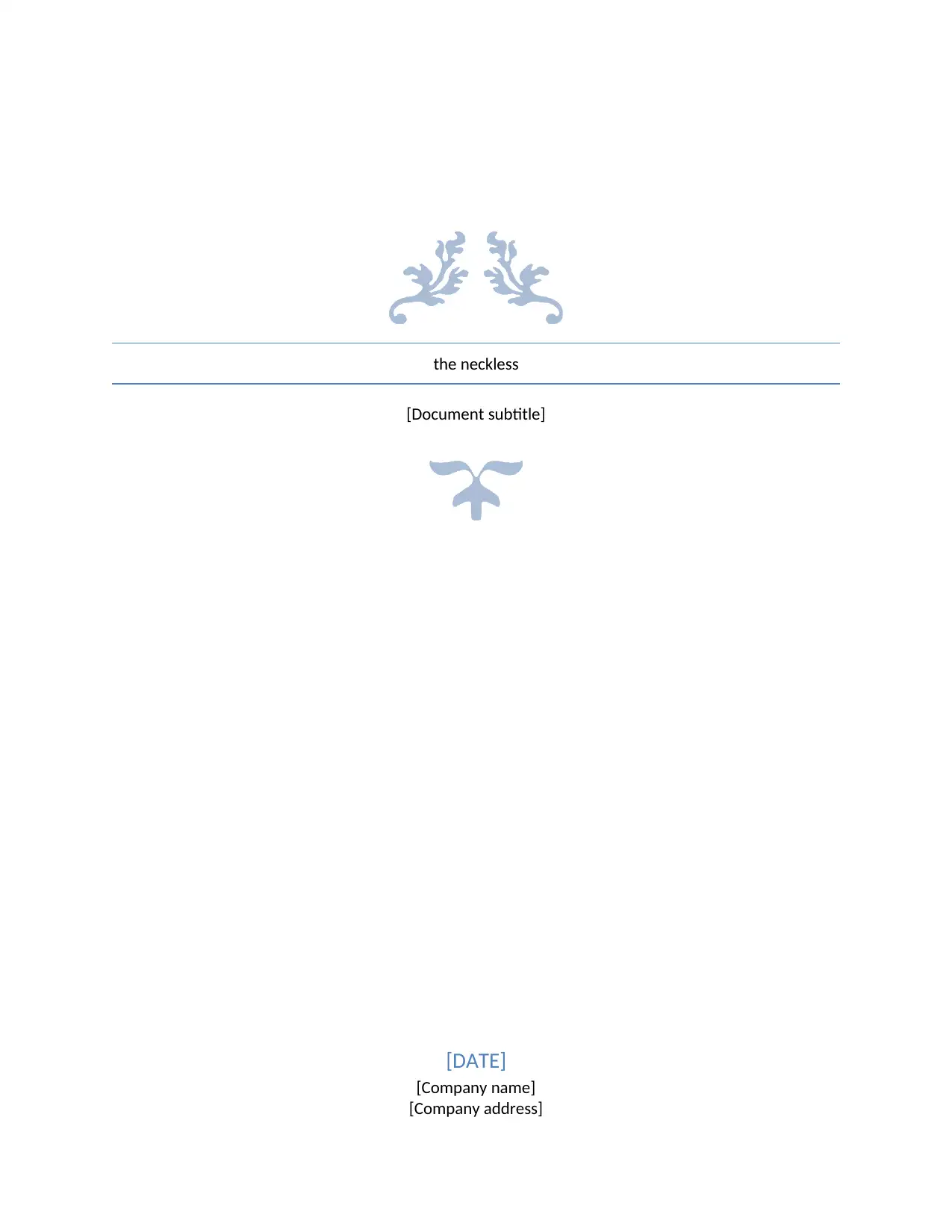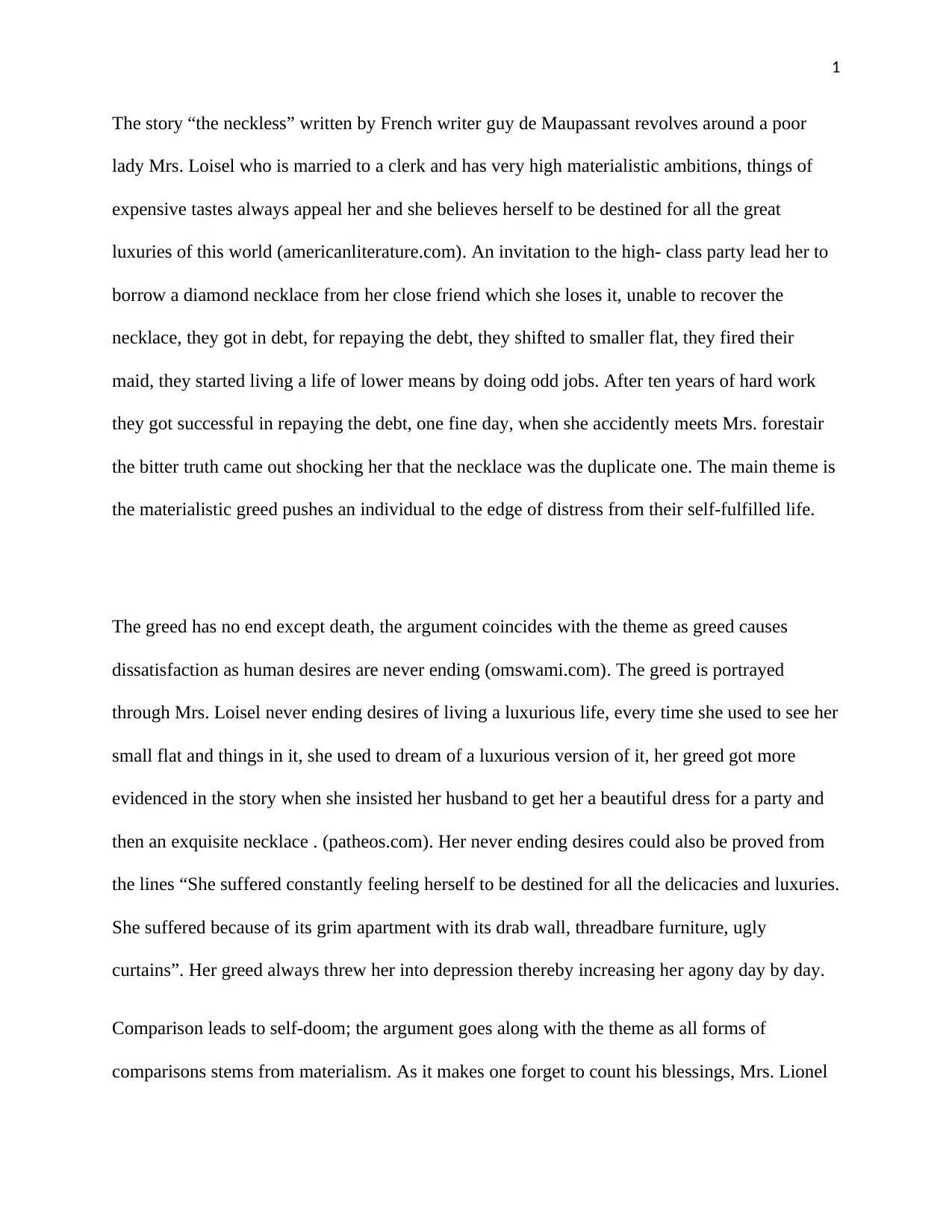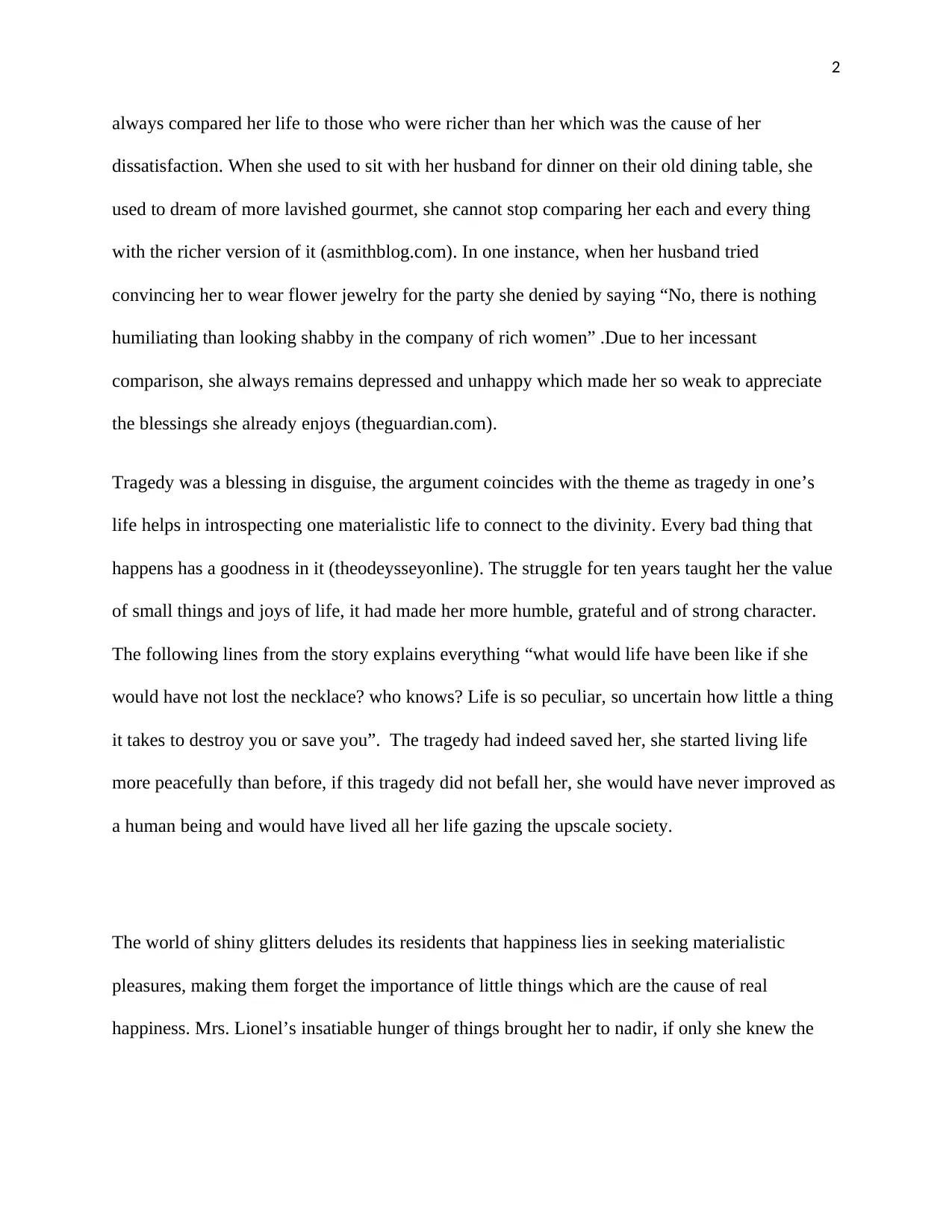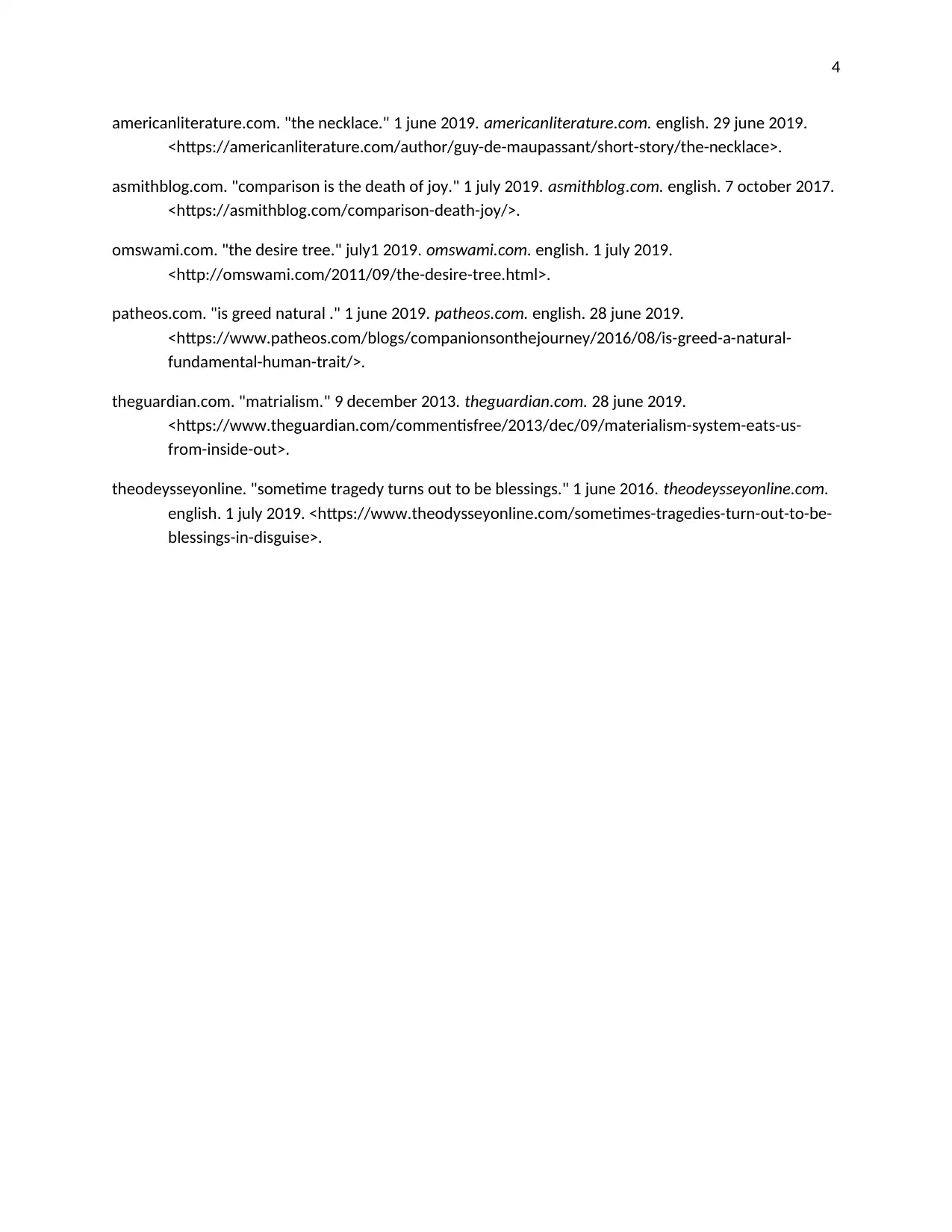Exploring the Theme of Materialism in 'The Necklace' by Maupassant
VerifiedAdded on 2022/12/12
|5
|941
|71
Essay
AI Summary
This essay provides a comprehensive analysis of Guy de Maupassant's short story, 'The Necklace,' focusing on the central theme of materialism and its detrimental effects. The essay examines how Mrs. Loisel's insatiable desire for a luxurious lifestyle, fueled by comparison and greed, leads to her downfall. It explores how her materialistic ambitions and constant dissatisfaction with her life drive her to borrow a diamond necklace, which she subsequently loses, plunging her and her husband into debt and hardship. The analysis delves into the consequences of her actions, including the ten years of toil they endure to repay the debt, and the ultimate revelation that the necklace was a fake. The essay argues that the story highlights the dangers of excessive materialism, the destructive nature of comparison, and the potential for tragedy to serve as a catalyst for personal growth and a reevaluation of values. The narrative also explores the theme that tragedy, though painful, can be a blessing in disguise, teaching the characters the value of humility and gratitude. The essay supports its arguments with specific examples and quotations from the story to demonstrate the impact of these themes on the characters and the overall message of the narrative.
1 out of 5







![[object Object]](/_next/static/media/star-bottom.7253800d.svg)